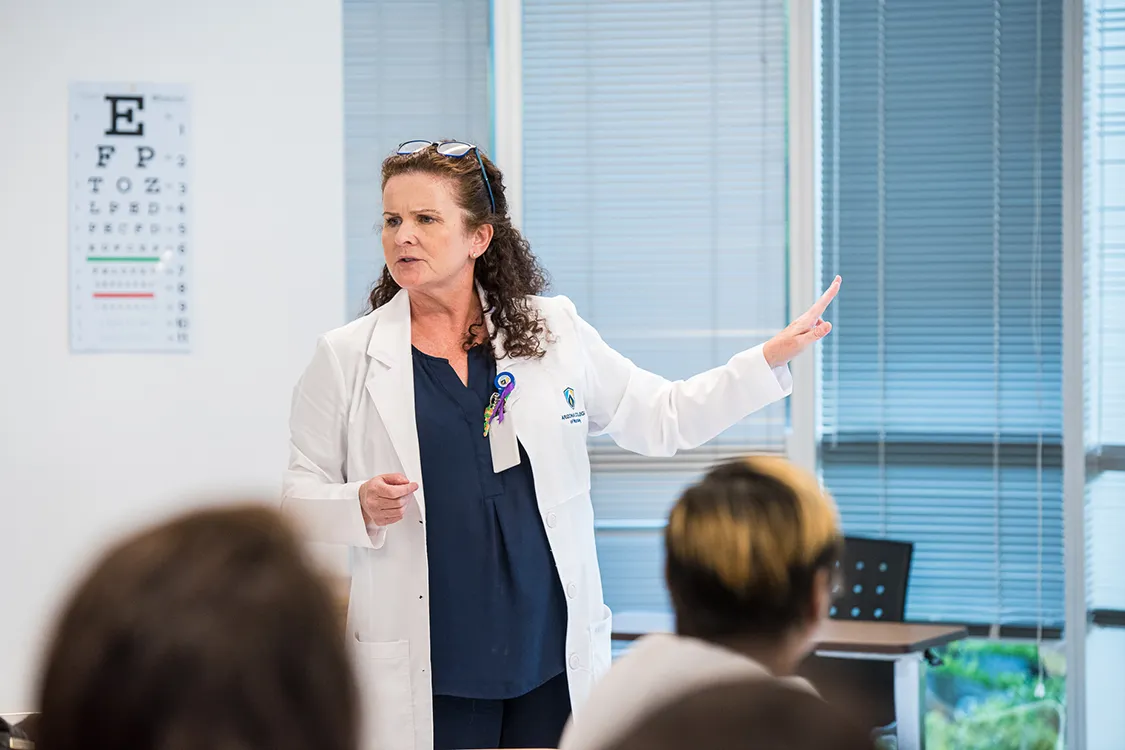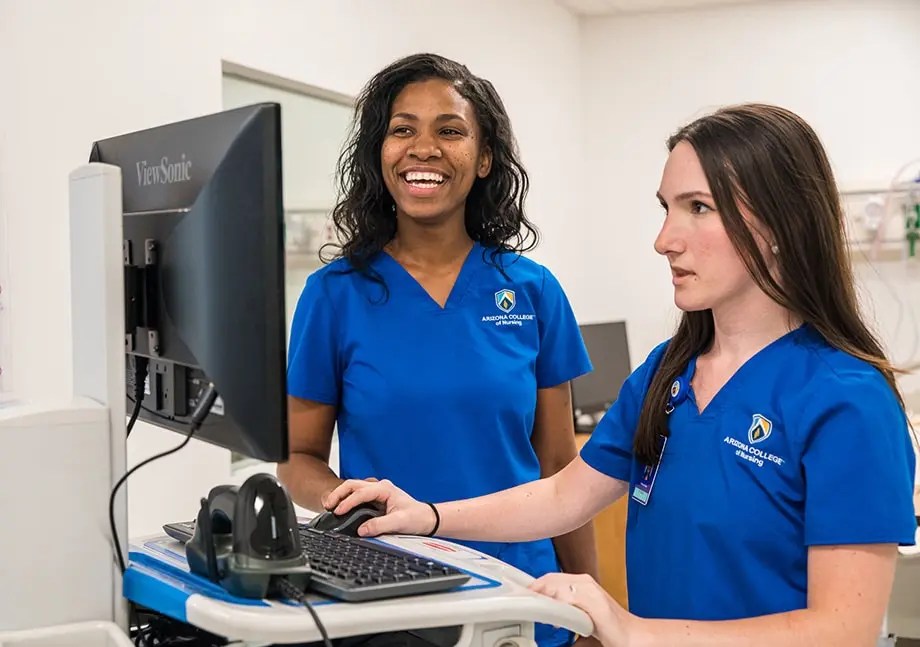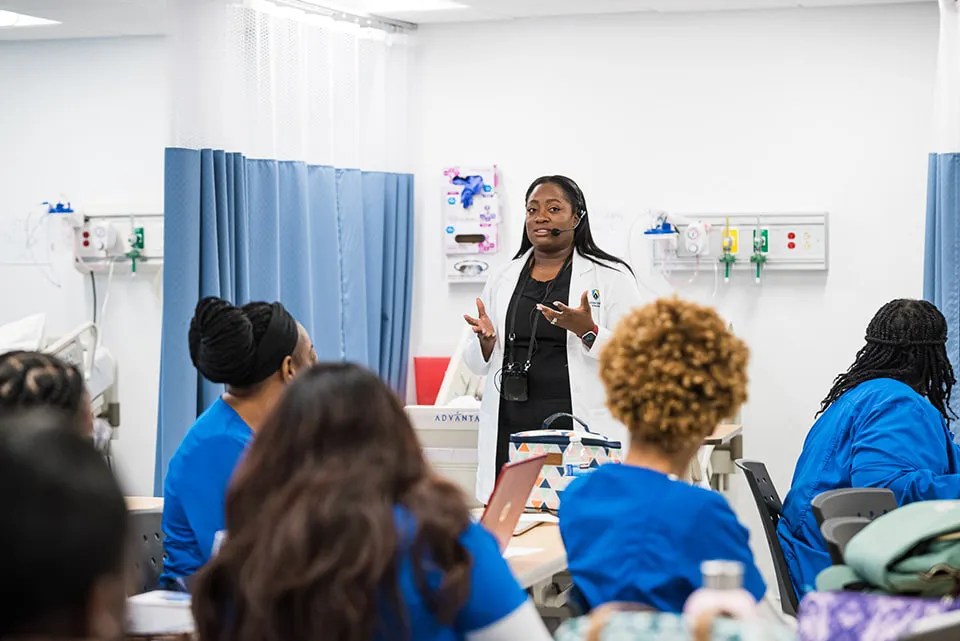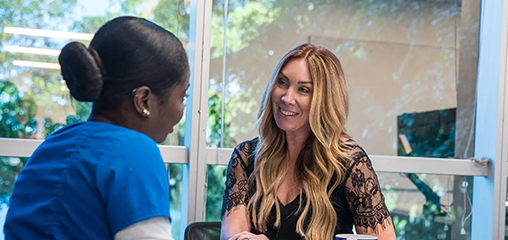
A Guide to Understanding Nursing Program Lengths and Choosing the Right One for You
As you think about nursing school, it’s only natural to have questions. How long is a nursing program? Which program is right for me? What type of nurse do I want to be? You should be asking these questions as you consider a future in the nursing field.
When it comes to nursing school, you have many different options — from diploma programs to bachelor’s degree to doctoral degrees in nursing. It is important to recognize that each program serves a different purpose and has a different length. Some prepare you for a job as an entry-level nurse, while others prepare you for a career as an advanced practice nurse. In this blog, we’ll discuss the major types of nursing programs available, typical program lengths, and different factors which may affect how long it takes for you to graduate.
Factors Influencing the Nursing Program Length
Several variables affect how long it will take for you to complete your nursing program. Things like program type and your previous education and experience will dictate how long it will take you to finish your program. Let’s get into them below!
1) Type of Program You Choose
The length of time it takes to complete your nursing program is largely dependent on the program you choose. Because nurses are healthcare professionals, there are standardized education requirements that dictate the number of hours of training required in each program. These hours differ based on the type of nurse one is preparing to be.
How long is a nursing program for RNs?
It can take anywhere from 11 months to 4 years to become a RN, depending on your previous education and program type.
How long is a nursing program for LPNs?
Most LPN/LVN programs will take 1-1.5 years to complete but can vary in length based on your prior background.
How long is a nursing program for nurse practitioners (NPs)?
It takes about six years to become a nurse practitioner – around four years for a BSN (Bachelor of Science in Nursing) degree program and an additional two years for an MSN (Master of Science in Nursing). In addition, you’ll need at least a few years of nursing experience. If years of education is overwhelming, remember, many nurses complete their MSN later in their career. Some nursing students who graduate with a BSN will first begin working as an RN before they go back to school for their MSN degree.
In general, the more advanced the role, the longer the program will take. However, even within programs, there’s variation. We’ll explain these nuances below!
2) Your Prior Education Experience
Did you take college-level (AP) courses in high school? Have you completed courses at a previous college or university? If so, those credits may help you obtain your nursing degree sooner! Nursing school programs typically have some general education (gen-ed) courses during the initial semesters. If you’ve completed college-level courses in certain general education subjects, you may be able to receive transfer credits for that experience and skip certain gen-ed classes.
You could also obtain your nursing degree faster if you have a previous degree. For example, the typical BSN program takes 3-4 years to complete. However, if you already have a bachelor’s degree in another field, some of your previous credits may be accepted and transferred to nursing school. The end result? You could finish nursing school faster!
Common Types of Nursing Programs and Their Lengths
Let’s talk about the most common nursing programs and how long it takes to complete them.
There are many types of nurses. Usually, when a person says “nurse” they are referring to a registered nurse. However, there are other types of nurses too! We’ll dive into those nurses and their programs.
Nursing School Lengths (In General)
- Bachelor of Science in Nursing Degree: 3 to 4 years
- Associate of Science in Nursing Degree: 2 years
- Licensed Practical/Vocational Nurse Diploma: 1 to 1.5 years
- Master of Science in Nursing Degree: 2 years
- Doctor of Nursing Practice: 2 to 4 years
Bachelor of Science in Nursing Degree (BSN)
Typical Length: 3 to 4 Years
The typical BSN takes four years to complete, which includes general education coursework, basic nursing courses, along with advanced assessment, research, and nursing leadership classes. At Arizona College of Nursing, you can obtain your BSN in just 3 years!
This is the most common education level of RNs, so if you’re planning to become a registered nurse, we strongly suggest you consider this option. Most employers prefer or require their nurses to hold a BSN at a minimum. You’ll also have additional career opportunities available to you with a BSN degree, such as a pathway to become a nurse practitioner (NP).
What if I already have a bachelor’s degree? There are some programs that will allow you to apply existing credits from a previous degree towards your nursing degree. These are sometimes called Accelerated BSN programs and take anywhere from one to two years to complete.
What if I am already an RN? An RN-to-BSN bridge program allows RNs to obtain their BSN in as little as 12 months!
Associate of Science in Nursing Degree (ADN)
Typical Length: 2 Years
ADN degrees are the minimum educational requirement to become an RN. They can be a stepping stone to a bachelor’s degree and facilitate entry-level RN employment. Programs are typically very fast-paced and takes two years of full-time attendance to complete. While this program prepares students to become a registered nurse, it is less comprehensive than a BSN program. Additionally, most healthcare employers require or prefer their nurses to hold a BSN as the minimum education level. If you want to become an RN as quickly as possible, an ADN degree could be an option for you. But holding only an ADN degree may substantially limit your employment prospects down the road.
Licensed Practical Nurse Diploma (LPN / LVN Program)
Typical Length: 1 to 1.5 Years
This program is typically offered at community colleges, technical schools and private training schools. The program prepares students to become an LPN or LVN (job title depends on which state you are in). In general, they take around 12 to 18 months (about 1 and a half years) to complete.
In this program, you’ll earn a diploma instead of a degree, which can prepare you to enter the nursing workforce quickly.
Keep in mind, an LPN program alone will not prepare you to become a registered nurse. However, there are bridge programs that can take you from an LPN/LVN to RN. But remember, some employers may still require you to obtain a BSN.
In this program, you’ll learn basic nursing skills like inserting an IV, bathing, and assisting in daily living activities. There are not usually any prerequisite courses required for these programs, so you can get started right away.
Master of Science in Nursing Degree (MSN)
Typical Length: 2 Years
An MSN is an advanced nursing degree, so typically nurses take this route after some work experience as a registered nurse. Although obtaining an MSN without prior nursing experience is possible, it is not recommended since nursing experience will help you determine what specialty to focus on during your master’s program. Additionally, before you can complete your MSN, you must also have a BSN, which usually takes 3-4 years to complete.
The timing to complete this degree largely depends on your education, nursing background, and program choice. While the MSN program takes about two years to complete, it could take a person five to six years of education to fully obtain their MSN degree.
Program Type Matters
ADN and BSN programs are designed to prepare students to become registered nurses and a generalist serving in various roles. Pursuing an MSN level degree allows students the opportunity to study specialized areas of practice. Many MSN programs have a minimum requirement of clinical nursing hours and experience before pursuing a specialty.
Doctor of Nursing Practice (DNP)
Typical Length: 2 to 4 Years
This the ultimate degree for nursing – meaning, there is no higher education than this. Most DNP programs take two to four years, depending on your exact program and what level of education and experience you are starting with. It also depends on whether you are attending full-time or part-time. The program requires both a BSN and MSN, along with prior nursing experience. Completing this degree enables you to take on nursing leadership positions in a variety of healthcare environments.
It’s also the least common degree for RN’s – only 2.7% of nurses hold this degree. Most nurses don’t need this level of education as this degree is only needed for a few specialized areas of nursing. For example, starting in 2025 all new certified registered nurse anesthetists (CRNAs) will be required to hold an DNP degree.
How to Choose the Right Nursing Program for You

Now that you know what your options are, how do you know which one is right for you? Great question. We’re here to help! Consider these questions and let the answers guide you.
How quickly do you want to enter the field?
If your end-goal is to enter the nursing field as soon as possible, then pursuing LPN/LVN school may be an option to consider. It will be your fastest way to enter nursing, taking just one year at the minimum! However, LPN/LVNs do have limited career mobility. For you to become an RN, it’d require additional education.
If you’re comfortable spending a few years in school, you might consider a BSN program as it gives you more career options in the future.
What type of nurse do you want to be?
If you want the most amount of flexibility in nursing job choice, become an RN. RNs work in every specialty area of healthcare. They also work in the largest variety of healthcare environments. To become an RN, pursue a BSN or ADN program.
If you’re looking at a more entry-level nursing role, an LPN/LVN program could be a good fit. Think about what type of nursing you’re drawn to and go from there!
What’s your lifestyle like?
How much time are you able to dedicate to your nursing education? Can you enroll full-time, or do you need a part-time program? Can you attend in-person, or do you need online classes?
Some nursing programs are flexible and offer a range of options, whereas others have strict attendance policies. It’s important to think about how much time you can allocate to nursing school.
What are your career goals?
Similar to the type of nurse you want to be, think about where you see yourself in nursing long-term. Do you want to work at the bedside or be a manager? Do you want to manage patient’s care, prescribing medications and ordering tests? Do you want to be a nursing professor or educator? All of these variables will guide you to a program that’s right for you.
Generally speaking, a nurse working at the bedside will need an LPN/LVN or RN license, and complete an LPN, ADN, or BSN program.
A nursing manager will often need a BSN or higher degree. Most professors and educators need an advanced education, so pursue an MSN degree if that’s your goal! Invest in a DNP program if you want to be a nurse practitioner and have the ability to prescribe medications and order tests.
How much can I invest in my education?
From a practical standpoint, finances may be a factor in what program you enroll in now. In general, shorter programs, like an LPN or ADN program, will be less expensive than the longer programs, like an MSN program. However, asking “how long is a nursing program?” is crucial, as the length directly affects cost.
Remember, you could have options for financial aid, tuition assistance, and scholarships to assist you in your nursing journey! Many schools have a financial aid officer that can work with you on building a financial plan that works for you and your family.
Start Your Future in Nursing Today

If you’re considering a career as a registered nurse (RN), Arizona College of Nursing is here to help you pursue your dream. Our BSN program enables you to earn a Bachelor of Science in Nursing in just 3 years or less with qualifying transfer credits. We’ve helped hundreds of students to earn a BSN degree and enter the nursing profession – and we’re ready to support you on your path to becoming an RN.
Why Choose Arizona College of Nursing?
- Earn a BSN degree in 3 years or less with eligible transfer credits
- Campus locations throughout the US
- Night classes for general education courses
- Hybrid Online/In-Person format for general education classes
- Nursing education is all we do
- CCNE-Accredited Program*
- NCLEX-RN success coaches and exam preparation class
- Financial aid available to those who qualify
Discover Your Path to a Career in Nursing
Information in this post is accurate as of June 17, 2024.
*The Bachelor of Science in Nursing (BSN) degree program at Arizona College of Nursing is accredited by the Commission on Collegiate Nursing Education (https://www.aacnnursing.org/). All Arizona College of Nursing and Arizona College campuses are institutionally accredited by the Accrediting Bureau of Health Education Schools (https://www.abhes.org/), a U.S. Department of Education-recognized accrediting agency.








